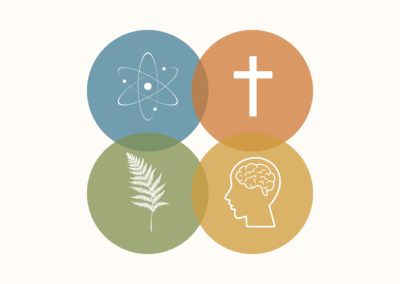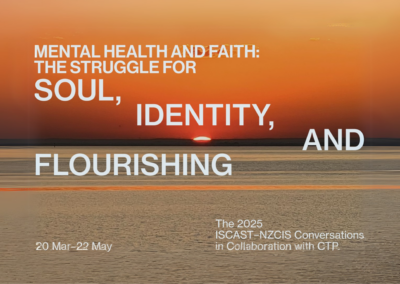Abstract
Ancient and indigenous cultures have long attributed consciousness to creation beyond the human. Whether due to the historic dominance of Christianity, the rise of Enlightenment rationalism, or scientific reductionism- such a view is often viewed by contemporary Westerns to be either inconceivably bizarre or a superstition without a proper intellectual basis. It is surprising and intriguing therefore that some notable analytic philosophers scientists are recovering the theory of panpsychism.
Panpsychism is the view that consciousness is a fundamental and ubiquitous feature of the universe. What are Christians to make of this revival of interest in panpsychism? This talk summarizes the core argument of Minding Creation: Theological Panpsychism and the Doctrine of Creation (T&T Clark, 2021)- that when it is decoupled from naturalism, theological panpsychism can be of great benefit to Christian doctrine and traces of panpsychist thinking can be found in the Christian tradition. I will also ask a new question, not considered in Minding Creation: How does the resurgence of interest in panpsychism in analytic philosophy and natural science relate to Moana cosmologies and ontologies?
Biography
Dr Joanna Leidenhag is a lecturer in Theology and Liberal Arts at the University of Leeds, teaching broadly in the sphere of Christian theology, philosophy of religion and intellectual history.
With qualifications in Systematic Theology, Theological Studies and Modern History and Theology, she is passionate about how philosophical concepts, scientific revolution and Christian theology are woven together to inform society and personal beliefs.
Through her PhD and subsequent books Minding Creation: Theological Panpsychism and the Doctrine of Creation and Creation and Ecology, Dr Leidenhag explored the concept of panpsychism and its relation to Christian orthodoxy, arguing that it is of benefit to the doctrine of creation. Panpsychism, broadly, is the understanding that mentality is ubiquitous in the natural world, and not limited to only humans and animals.
Dr Leidenhag is currently undergoing research exploring what people with neurodiversity, particularly autism, can teach the church about what it is to be human, a child of God and members of the Body of Christ.
Qualifications:
- PhD in Systematic Theology, University of Edinburgh
- M.A. Theological Studies, Princeton Theological Seminary
- M.A. Modern History and Theology, University of St Andrews
- Associate Fellow of the Higher Education Academy



